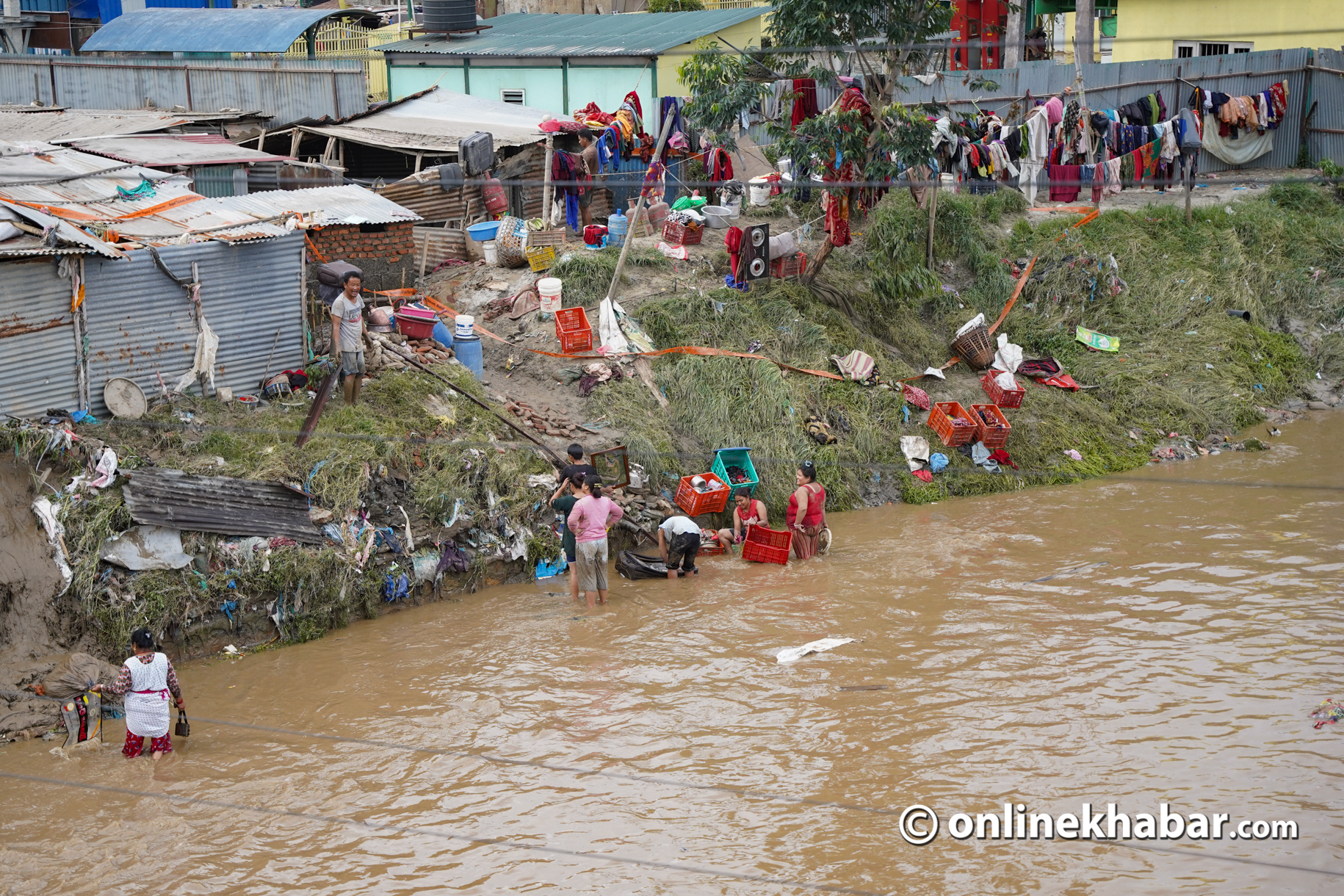
Vulture has negative connotations in several cultures. The Cambridge Dictionary defines it as “a person or organisation that is eager to win an advantage from other people’s difficulties or problems.” Nepali society has a similar metaphor of vulture’s eyes, which means unjustified greed to take over someone else’s assets.
For nature conservationists, however, vultures are the custodians of nature.
The conservationists say the misunderstood image of vultures is evidence that humanity is yet to understand nature rightly.
Aiming to change such misunderstandings, a group of conservation activists have launched a project titled Vulture Theatre. Since September 2022, Jane Goodall Institute (JGI) in collaboration with Children and Youth First (CYF), a charity-run school in Lalitpur, is staging the drama titled Misunderstood Bird in various streets of the country. The group says it wants to expand to other themes of nature.
Vultures in Nepal

Namita Kandel, a programme designer at the JGI says her organisation brought the initiative to stress the importance of vultures in nature among the public. “Although the vultures hold great significance in the ecosystem, people do not give it importance. What if there remains no vulture to clear carcasses,” Kandel questions, “But why do you consider this a sign of negativity?”
The role of vultures is directly connected to humans, nature and the entire ecosystem, Kandel says. “If we do not conserve it, our surroundings can face various negative consequences.”
Lately, the number of vultures is growing in Nepal. In the early 2000s, the number decreased significantly thanks to careless humans. It was found that the vulture population was affected after they ate the carcasses of the cattle that had consumed diclofenac. The drug led the birds to kidney failure. Hence, Nepal banned the use of diclofenac in 2006.
The theatrical campaign

The latest show of Misunderstood Bird was held on February 15 in Mahottari, southeastern Nepal. So far, the play has been staged in six places — the Kathmandu, Lalitpur, Nawalpur, Dhanusha and Mahottari districts, and the Koshi Tappu region.
Kandel says there are plans to stage this in hotspots of the vulture population in Nepal. Now, the next show of Vulture Theatre will be held in September.
Altogether 19 students from CYF, aged between 10 to 19, have been performing at the Vulture Theatre since the beginning.
According to her, Vulture Theatre is part of a protest against the proposed construction of the Nijgadh airport to show that animals are an integral part of the forests and the lives associated with them. The whole story started when the People Alliance for Nature Nepal (PANN), a loose alliance of environmentally oriented individuals and entities, protested against the controversial project a few tears ago.
After the establishment of PANN in 2019, environmental researchers and other like-minded people gathered and recognised eight key species of Nepal that are endangered and named them Anautho Aath (The Incredible Eight). Among them, vultures are one.
The other seven species include pangolin, river dolphin, brown bear, Asiatic elephant, bumblebee, leopard and spiny babbler.
Experience at Vulture Theatre

Kandel says the students themselves wrote the script of the play after a series of workshops with vulture conservation experts.
“The Vulture Theatre has taught us about the different aspects of the vulture, its importance and its status in Nepal,” says Sabin Kumar Thakur (19) of Mahottari, who has three different roles in the play.
Another performer Samrika KC (16) of Chandragiri, Kathmandu, observes that the play made the audience curious about the vultures. KC says, “Performing the play has helped me overcome the misconception regarding vultures that were imprinted into my mind since childhood.”
The vultures are personified in the drama where the performers wear masks to disguise themselves as vultures. Their masks are made up of waste materials, which are created by themselves.
“In some places, we faced a language barrier, but the props used in the play made the spectators easy to understand the message of the play,” says Haushala Thapa Magar, the mentor of the Vulture Theatre project.
Along with educating the students about the vulture, the project has also enhanced their confidence and social skills, she says.
“Moreover, they have developed empathy towards the species,” she says.
























